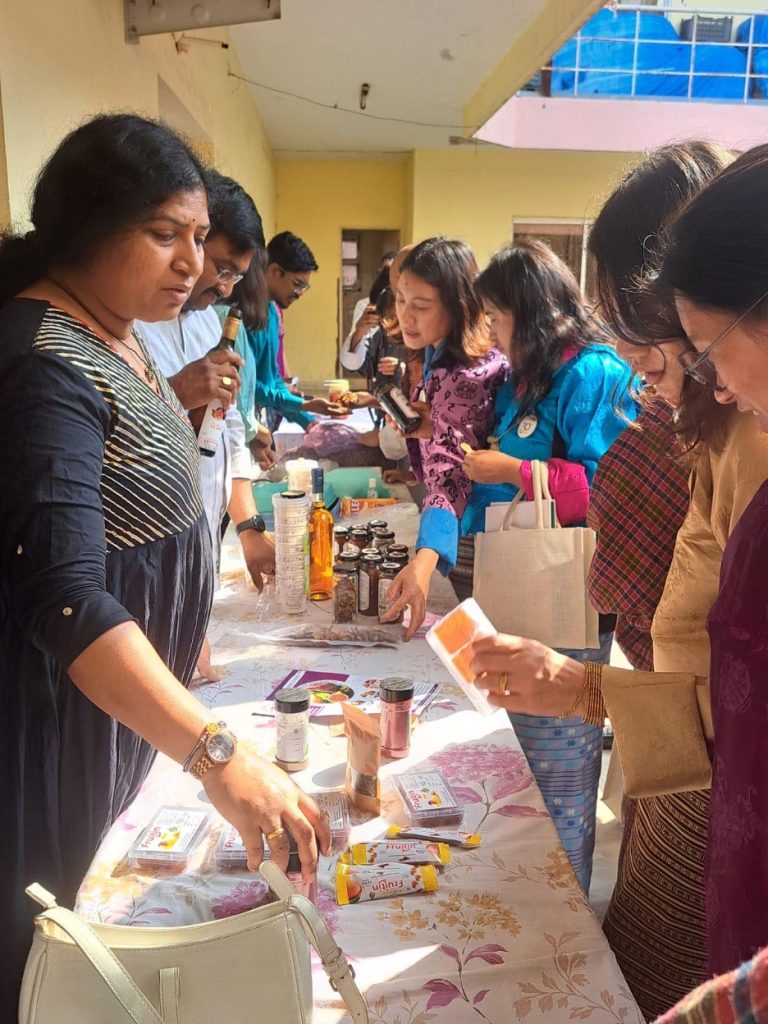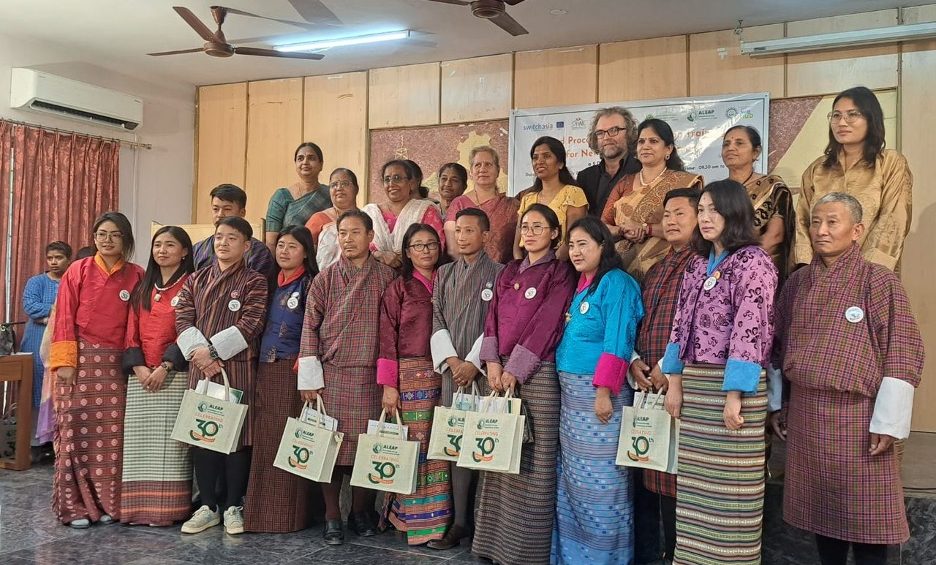The five-day training program on “food processing and preservation for new product development”, funded by the EU Switch-Asia Programme, through the Sustainable Hospitality Industry Inclusive of Native Entrepreneurs (SHINE) project was successfully conducted from 16 to 20 January, 2024.
The Center for Appropriate Technology (GrAT), Stenum Asia, and the Association of Lady Entrepreneurs of India (ALEAP) collaborated to design the training program for the selected 15 entrepreneurs and cooperatives from eastern Bhutan. Their products include diary, peanut, mushroom, cookies, pickle. Participants were evenly selected from the 7 target districts.
The SHINE project engaged ALEAP, acknowledging their long experience and excellent facilitation for women in acquiring entrepreneurial skill, guiding to become economically independent and assisting them in all walks of life in their enterprising endeavors. Entrepreneurship development and hand-holding support is one of the core areas of ALEAP portfolio.
The training curriculum included networking opportunities, industry visits, hands-on training, new product creation, and expert-led theory sessions. Numerous professionals discussed the difficulties and problems they first encountered while starting out in the food processing industry, along with their wealth of expertise and success stories. The participants were inspired by the tales of the entrepreneurial journey and were given the chance to interact with professionals, ask questions, and acquire useful information.


A major focus of the training was on developing innovative products for the food processing sector. Participants from Bhutan gained knowledge on brainstorming, innovating, and launching new food products that meet changing consumer needs. In addition to covering the technical aspects of food production, the course encouraged participants to explore new products and provided networking opportunities and mentorship. Participants’ understanding of the chances and pitfalls to avoid in their firm was enhanced by seeing how theoretical principles were implemented in practical operations through the industrial tours.
The wide range of subjects addressed, from cutting-edge industrial technologies and organic food processing to distillation and mushroom cultivation, shelf-life control and packaging, and good hygiene practice (GHP) and good manufacturing practice (GMP), made sure that participants obtained a comprehensive education in the field. The interaction with the female entrepreneurs highlighted the value of inclusion and diversity in the food processing industry even more.
During the practical class, millet and chili were utilized to create millet treats and chili paste. The participants also taught on how to make various candies and cookies was the topic of another hands-on class.





Throughout the training program the participants showed great deal of interest and enthusiasm, looking forward to developing their own new products and improving existing ones. Proactive marketing strategies both in local and international market were also learned. Certificates were awarded to acknowledge their successful completion of the training, symbolizing their new found expertise in food processing and preservation.
“The program provided a valuable overview of the technological landscape in the food processing sector and the focus on a sustainability and how technology can be harnessed for both innovation and environmental responsibility,” said by Mr. Jamyang Tenzin.
Feedback from the participants indicated a high level of satisfaction with the program. Many expressed appreciations for the practical nature of the training, citing increased confidence in adopting advanced food processing and preservation techniques. Participants highlighted the cultural exchange aspect as a valuable component, contributing to a holistic learning experience.

The training program’s goals of empowering participants with information, encouraging an entrepreneurial spirit, and providing a forum for networking and collaboration were all successfully attained. The course provided participants with the knowledge and abilities needed to succeed when they started their careers in the food processing business.


